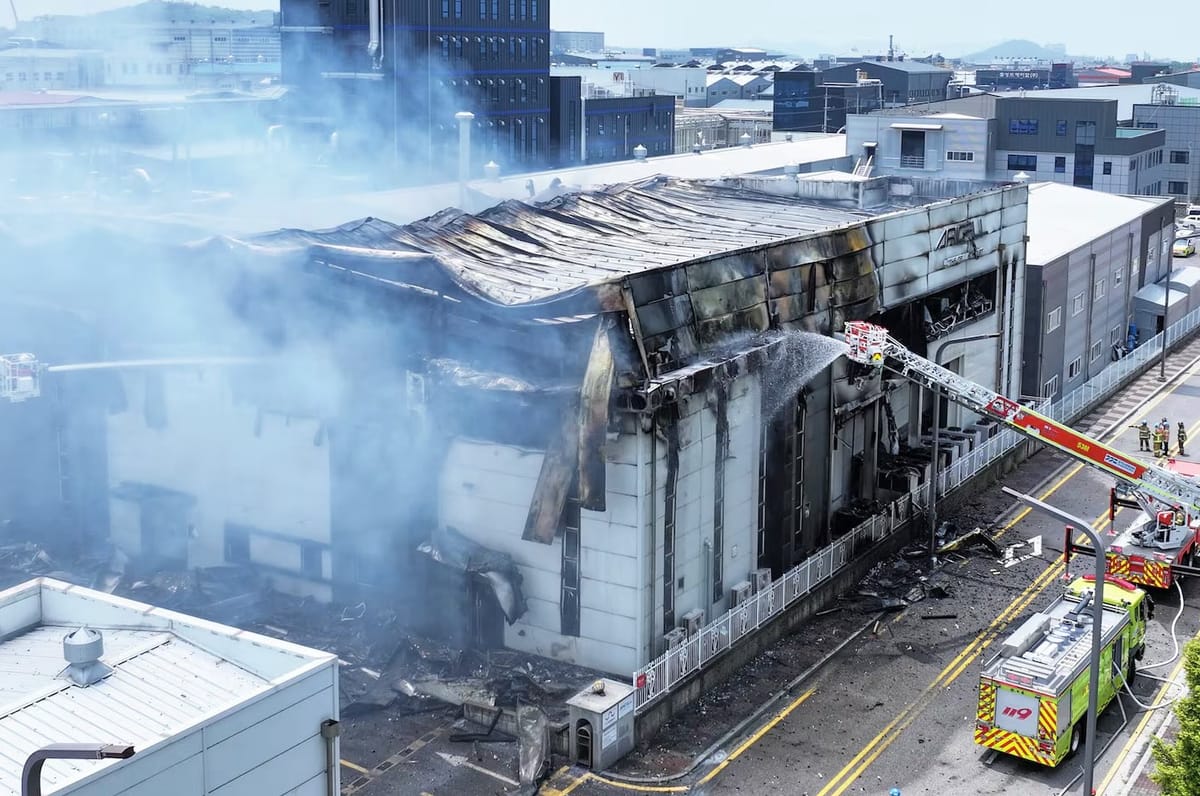Sergeant Chae Special Prosecutor Act Advances Amid Controversy, While Deadly Battery Factory Fire Raises Concerns
Legislative Battle Intensifies Over Marine Corps Death Investigation, Deadly Fire at Hwaseong Battery Factory Raises Serious Concerns, Leaflet Campaigns Spark Domestic Debate amidst Inter-Korean

Legislative Battle Intensifies Over Marine Corps Death Investigation
The opposition-led "Chae Sergeant Special Prosecutor Act" is gaining momentum in the National Assembly. On June 21, the National Assembly's Judiciary Committee, dominated by the Democratic Party of Korea, passed the bill without the participation of the ruling People Power Party. This move comes as the first anniversary of Sergeant Chae's death approaches on July 19, adding urgency to the opposition's push for a thorough investigation. The bill, which calls for the appointment of a special prosecutor to investigate allegations of improper intervention by the Presidential Office and the Ministry of National Defense in the case, is now poised for a full National Assembly vote within the June extraordinary session.
The passage of the bill in committee marks a significant step forward for the opposition, but it's far from the end of the road. President Yoon Seok-yeol had previously vetoed a similar bill, and the ruling party continues to oppose the measure. The opposition is racing against time, aiming to process the bill before the preservation deadline for communication records related to the case expires. If passed by the full Assembly, the bill faces the possibility of another presidential veto, setting the stage for a potential constitutional showdown.
"Everything has gone awry because of the fury of one person"
The recent legislative hearing on the bill revealed deep divisions and raised serious questions about transparency and accountability in the investigation. Key witnesses, including former Defense Minister Lee Jong-seop and former Vice Minister of National Defense Shin Beom-chul, refused to take the witness oath, citing ongoing investigations by the Corruption Investigation Office for High-ranking Officials. This unprecedented refusal to take the oath prompted fierce criticism from lawmakers and raised suspicions about potential cover-ups. Former Minister Lee even issued a press release stating he refused the oath "to testify more actively and faithfully," a claim that was met with skepticism and derision.
Perhaps the most impactful testimony came from Colonel Park Jung-hoon, the former commander of the Marine Corps investigation team. Park's statement that "Everything has gone awry because of the fury of one person" and his lament that "It is so tragic that there were so many calls and collusion" painted a damning picture of external pressure on the investigation. These revelations have fueled public outrage and strengthened calls for a special prosecutor to uncover the full truth of the case. The behavior of witnesses at the hearing, alternating between silence and evasion, has only intensified suspicions of high-level interference in the investigation.
At the heart of the controversy are allegations of direct involvement by the Presidential Office in the investigation. The timeline of events, particularly surrounding the retrieval of investigation records from the police on August 2 last year, has come under intense scrutiny. Former National Security Office Defense Secretary Lim Ki-hoon and former Presidential Office Public Service Ethics Secretary Lee Si-won were revealed to have had multiple contacts with high-ranking officials at the Ministry of National Defense and the military around this time, raising suspicions of conveying presidential directives. The refusal of these officials to provide clear answers about their communications has only deepened the mystery and public distrust.
The political ramifications of this case extend far beyond the immediate investigation. The Democratic Party is leveraging the controversy to challenge President Yoon's leadership and decision-making, while the People Power Party attempts to defend the administration and portray the special prosecutor push as a political witch hunt. This partisan divide is reflected in public opinion, with many citizens viewing the case through the lens of their political affiliations. The controversy has the potential to significantly impact President Yoon's approval ratings and his ability to advance his legislative agenda. As the debate rages on, the case continues to raise fundamental questions about civil-military relations, the independence of investigations, and the balance of power in South Korean democracy. With the opposition pushing for rapid processing and the administration likely to resist, the coming weeks are set up for a political spectacle.
Deadly Fire at Hwaseong Battery Factory Raises Serious Concerns
A tragic fire at a lithium primary battery factory in Hwaseong, Gyeonggi Province, has left at least 22 people dead and several others injured, casting a spotlight on industrial safety standards and the treatment of foreign workers in South Korea. The fire broke out around 10:31 AM on June 24th at the Aricell factory, located in the Jeon-gok Industrial Complex. The blaze, which started on the second floor of the facility, quickly spread due to the presence of approximately 35,000 lithium batteries stored on that level. The rapid progression of the fire, coupled with the hazardous materials involved, posed significant challenges for firefighters and rescue teams.